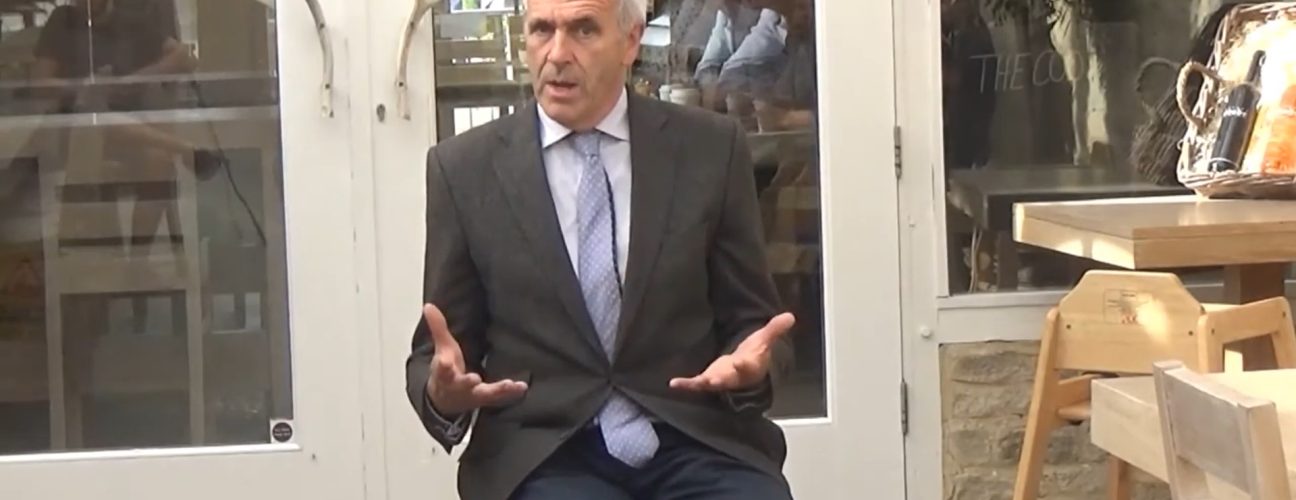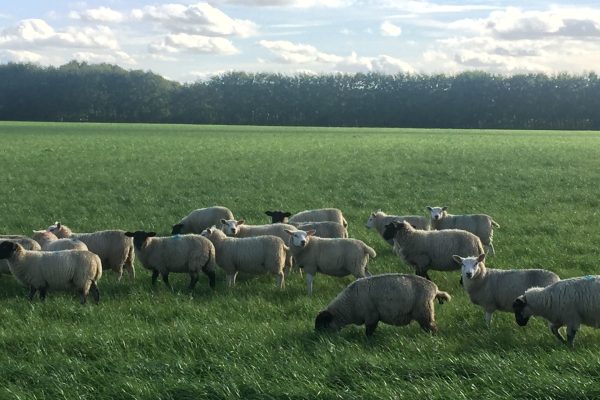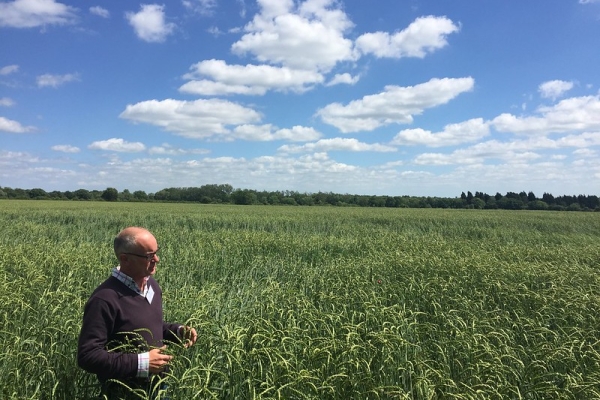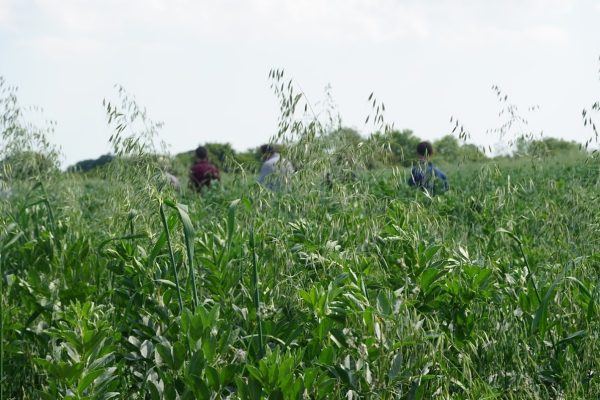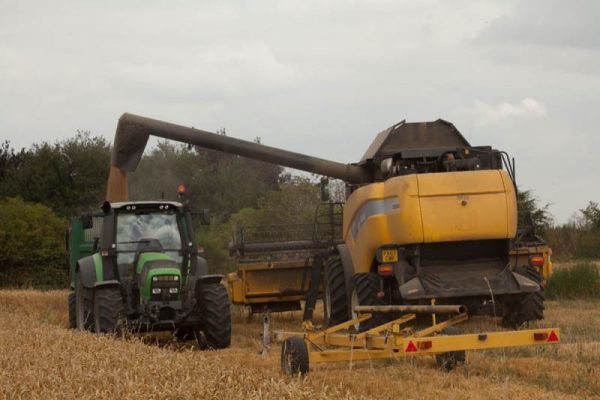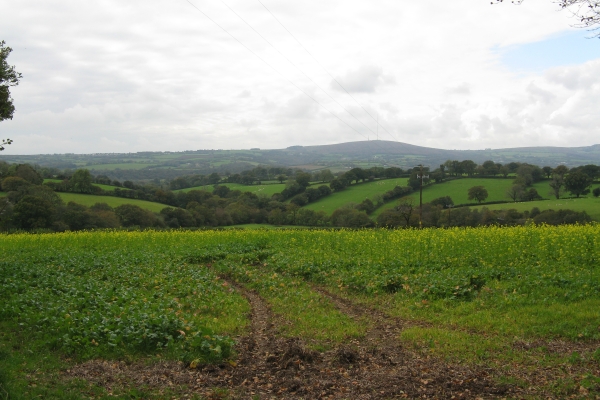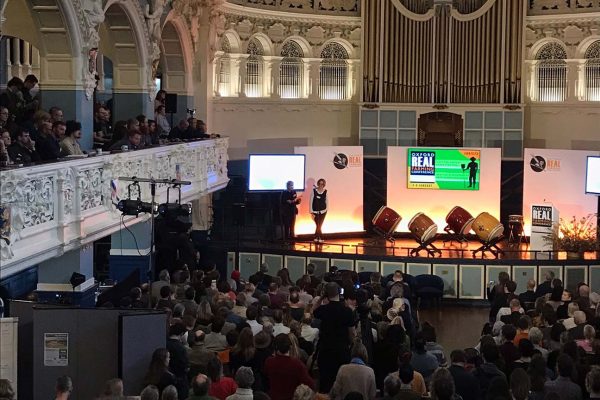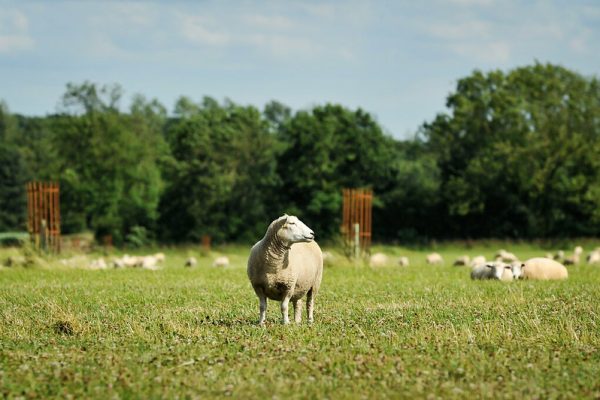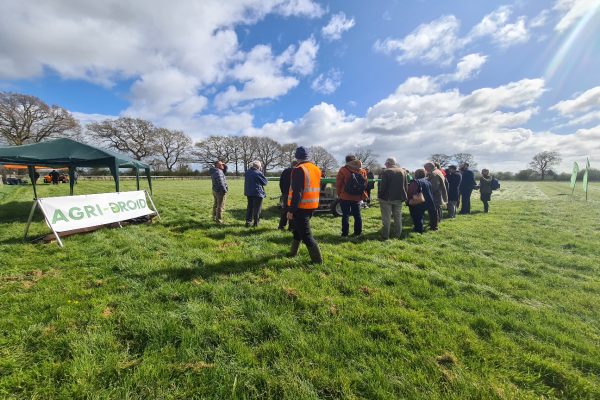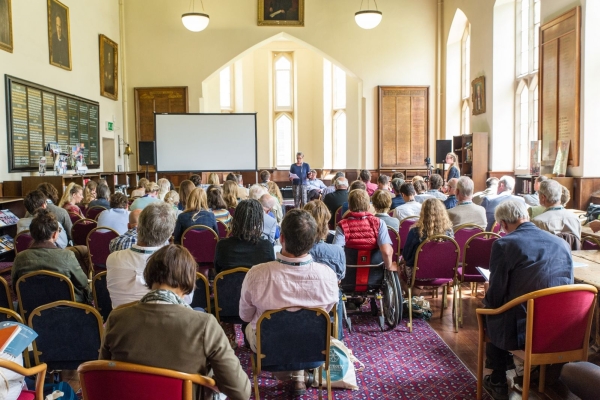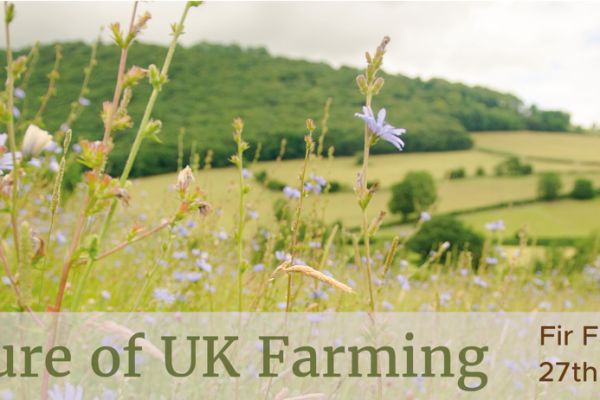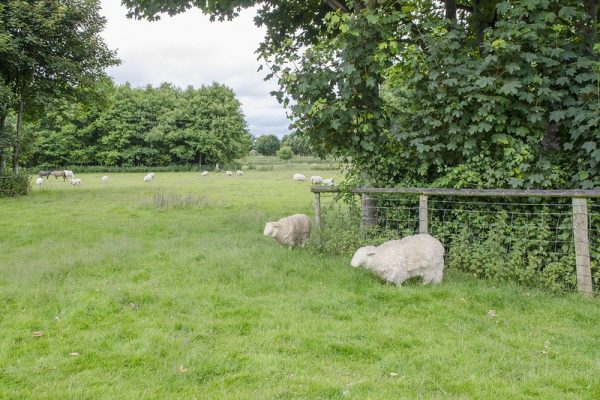The Future of Food
Patrick Holden (organic dairy farmer and Director of the Sustainable Food Trust) recently gave a talk at Daylesford Organic Farm. This video is footage from it.
Here is a brief synopsis and some highlights:
- It begins with Patrick telling members of the audience about his farm and farming philosophy; of wanting to be as sustainable as possible and aiming at being self-sufficient, which includes growing as much of the food that the cows eat on the farm as he can. He explains his aim is “to think about everything that happens on the farm as a sort of miniature ecosystem – where the animals and the plants on it are adapted to the place and over time hopefully become better for that.”
- He aligns it with Rudolf Steiner’s biodynamic philosophy who urged us to think of the farm as a closed ecosystem where the animals and plants and their descendants will become adapted to the climate, the soils and the management conditions over time.
- He explains that he thinks this idea is now being validated by modern science, referring to the science of epigenetics (the observation that all organisms are in a constant dynamic relationship with their external environment and everything that happens to us has an effect on us at a cellular level).
- Patrick puts forward the case that farming has been increasingly moving in the opposite direction to this, the effects from industrialised farming being a reduced vitality of crops with weakened epigenetic ability to suppress diseases threats. These diseases are then in turn suppressed artificially and we have fed the result of ‘degraded’ and ‘industrialised’ food to two generations, the impact of which he suggests we can see in the decline of vitality, physical health, and even in the intelligence of people across the world.
- He suggests that the feeding of degraded food to a population that’s become acclimatised to it begs the question of; being faced with this challenging situation, what should I eat and how should I farm? He refers to the hidden costs of industrially produced food that don’t appear on the price label.
- You can also hear his views on eating in proportion to the productive capacity of the farms under sustainable management around you, and on the much debated topic of eating meat. He suggests that if you are going to eat from the footprint of a farm then red meat in particular can actually be part of the solution as long as it is grass and not grain fed. Citing Daylesford Organic Farm, he says if you wanted to align your diet with the productive capacity of it, then meat and dairy products are part of the structural necessity to produce food within the rotation.
- He also expresses his views on: the importance of soil, which he refers to as being the “stomach of a plant”; of divisions within the farming community; the need to measure sustainability and apply those metrics to all farming practices; the need to have an organic market; and the need to do something about the image of organic food that has developed because of a failure to put a proper price on the negative externalities.“We need a sophisticated understanding of the issues then allow people to make their own choices.”
- The footage is interspersed with a few questions from the audience on the topics of conversion to organic status, less focus on the organic label and more on the sustainable, and the importance as a consumer of knowing that a product has been produced organically.
The information contained above reflects the views of the author/s and does not necessarily reflect that of Agricology and its partners.
Related articles
Katie Bliss explains how reintegrating leys and livestock into arable rotations can play a key role in the transition to more sustainable and resilient farming systems.
Samantha Mullender from the Organic Research Centre introduces a computer based nutrient budgeting model that helps farmers assess the potential for improving nitrogen efficiency in...
"...The strength of Agricology is that it promotes practical, sustainable farming regardless of labels through its network of partner organisations. Together we can build more...
Sandra Bell from Friends of the Earth discusses the advantages of farming without chemicals, highlighting the risks that pesticides pose to UK wildlife.
Jen Clements explores whether current political uncertainties present an opportunity to shape the future of the Cornish farming landscape.
Agricology's Farm Engagement Officer Matt Smee reflects on his experience of the ORFC (2023) and its contribution to helping build a resilient, equitable and sustainable...
Dr Ruth Clements from FAI Farms asks how livestock management practices can be changed to reduce the need for antibiotics, sharing an example from her...
Matt Smee reports back from attending an event intended to help make steps towards a practical incarnation of RASE’s 2022 report 'Farm of the Future:...
Patrick Holden shares his reflections on a recent Sustainable Food Trust (SFT) conference which explored the benefits of taking an integrated approach to farming and...
The upcoming Future of UK Farming Conference will provide a forum for farmers and policy makers to discuss some of the agricultural industry's most pressing...
Helen Chesshire from the Woodland Trust describes a research study by Bangor University which is using robots to investigate the effect of trees and shelterbelts...
